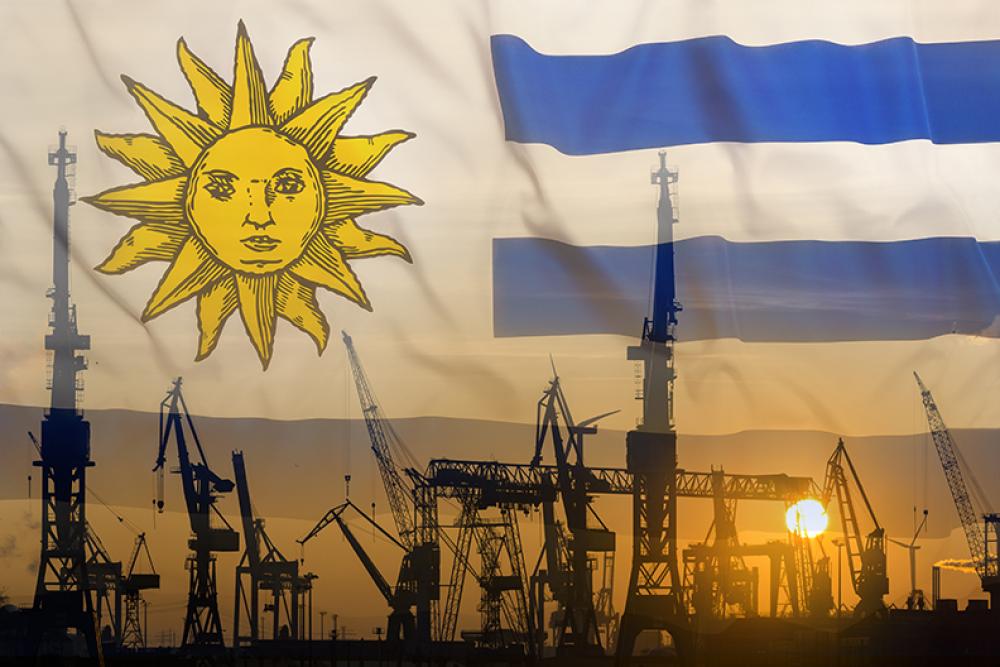RIO DE JANEIRO, BRAZIL – In recent months, changes have taken place worldwide that affect the hydrocarbon industry and could put Uruguay back on the offshore exploration map.
Three main elements make this case. One of the most obvious is the increase in commodity prices, including oil, whose value has already risen, exacerbated by the start of the war between Russia and Ukraine.
With the prospect of sustained price levels above US$90 and US$100 per barrel, projects that would not have been considered in a different price scenario are once again being considered.

A second key element is a global need for alternative sources of oil and gas. Today, the outcome of the war in Europe is creating uncertainty about the future availability of Russian natural gas.
A third issue is the significant discoveries of reservoirs in Namibian waters, whose geology is similar to that of Uruguayan territorial waters.
According to specialized media, Shell and Total Energies have recently discovered oil and gas in two areas in this part of Africa described as very promising.
“There is a growing interest” in Uruguay, and companies that have pulled out in the past may return, Ancap president Alejandro Stipanicic admitted to FM Gente de Maldonado on Monday.
MAY AND NOVEMBER
Currently, there are no exploration contracts in the country, only contracts for the commercialization of the data obtained. Service companies interpret the available data or studies based on the field surveys carried out in the last 15 years.
However, there is the Open Round system, where oil companies can apply to qualify and bid at any time. In this way, there are two phases per year when the bids are opened. The following window is in May and the other in November.
If there is a competition for the same area in the same six months, the bids are compared, and the site is awarded to the bid with the highest score.
In this case, companies can qualify only for the exploration period without drilling, the exploration period with drilling, or the exploration and exploitation period.
According to information published by Ancap, six offshore areas are currently being offered. The agency is optimistic that it will again attract the interest of international companies.
For Stipanicic, oil exploration, which Uruguay has been doing for 40 years, is “regaining value” because the discovery of oil and gas deposits in Namibia “concludes a hypothesis,” namely that in Uruguay’s geological basins “the necessary conditions for oil deposits could exist.”
“With new geological information on discoveries, existing information, market prices, and, above all, the global need for alternative sources, our frontier areas are becoming more valuable again. This does not mean we will have oil soon; there is still a long way to go,” he added.
RECENT HISTORY
The current allocation system has more flexible terms than previous ones and was introduced after the 2018 tender for 17 offshore oil blocks (Uruguay Round III) was rejected. Although the British company Tullow Oil and the Brazilian company Azilat were eligible in this case, they did not submit a bid.
At that time, expectations of winning contracts were very modest, as the fall in international oil prices had led to the withdrawal of riskier and more costly projects, such as offshore projects.
This was compounded by the negative result of the French company Total, which drilled offshore in 2016 and found no oil. This result led it to relinquish the awarded area in 2017. In the case of the Tullow OIL-Inpex-Statoil consortium and the multinational Shell, the companies withdrew after the exploration phase. They did not proceed to the phase of drilling a well.
Under the new open round format, U.S. oil company Kosmos Energy submitted bids for two blocks in 2019 but withdrew from contract negotiations. And in 2020, a bid was received from Bahamas Petroleum Company for one area (which is being reviewed by the executive branch).
Although no commercial discoveries have been made to date, an extensive database is available for future exploration projects. Between 2007 and 2020, a total of US$1.075 billion was invested in hydrocarbon exploration in Uruguay.
From the sale of information and contracts with oil companies, Ancap generated revenues of US$37.1 million in the 2009-2020 period, according to data accessed by El Observador.
It should also be recalled that major oil companies such as Exxon Mobil, Chevron, Shell, Total Energies, and BP, among others, experienced a year of high profits in 2021. In that year, oil and gas prices recovered after the pandemic collapse in 2020.
These better figures have helped increase the commitment to renewable energies in line with decarbonization plans without altogether abandoning hydrocarbons investments.
With information from El Observador

